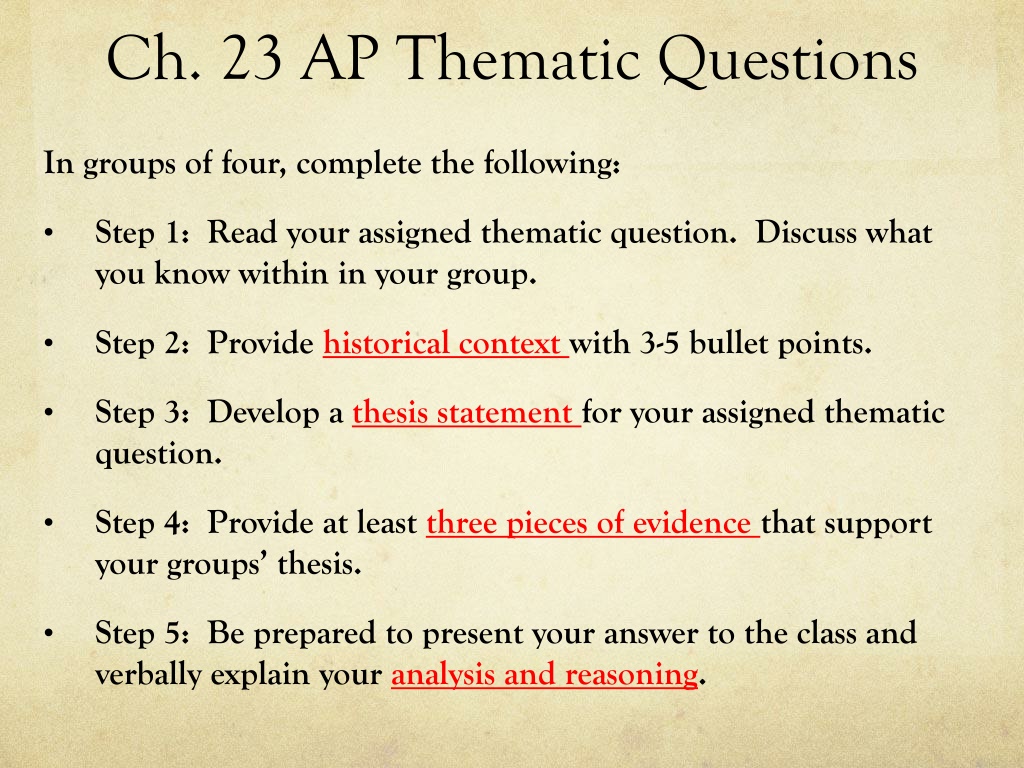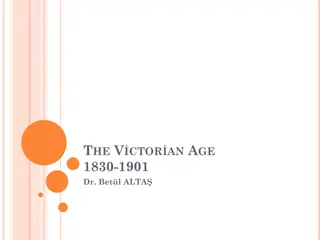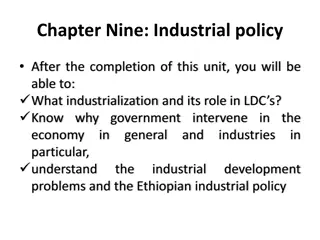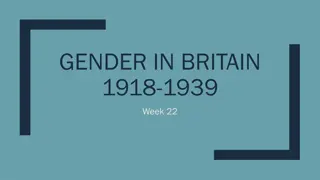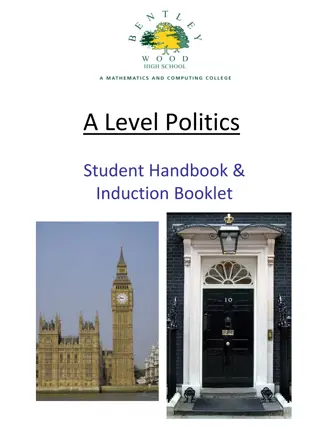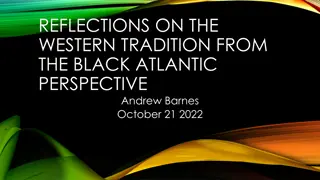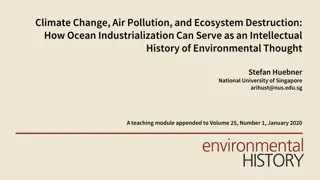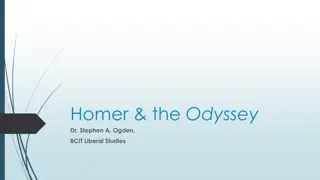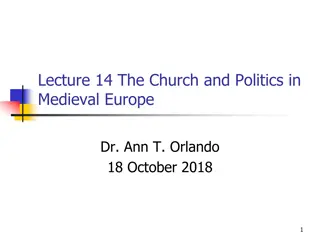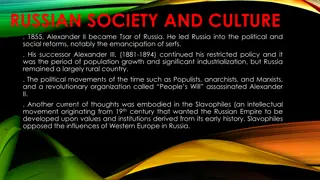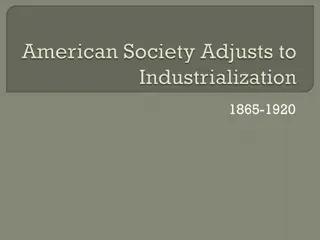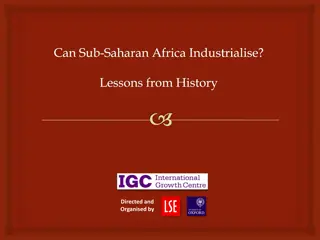Industrialization and Its Impact on Politics and Society in Western Europe
Industrialization spread through Germany and western Europe in the late 19th century, bringing about significant changes to politics and society. Governments implemented reforms to improve workers' lives, consumerism influenced the middle class and working people, and mass political movements aimed for societal change. The beliefs of anarchists and evolutionary socialists differed from earlier forms of socialism, and gender roles were shaped by the cult of domesticity. The old political and social order persisted in eastern Europe and Russia to a great extent.
Download Presentation

Please find below an Image/Link to download the presentation.
The content on the website is provided AS IS for your information and personal use only. It may not be sold, licensed, or shared on other websites without obtaining consent from the author. Download presentation by click this link. If you encounter any issues during the download, it is possible that the publisher has removed the file from their server.
E N D
Presentation Transcript
Ch. 23 AP Thematic Questions In groups of four, complete the following: Step 1: Read your assigned thematic question. Discuss what you know within in your group. Step 2: Provide historical context with 3-5 bullet points. Step 3: Develop a thesis statement for your assigned thematic question. Step 4: Provide at least three pieces of evidence that support your groups thesis. Step 5: Be prepared to present your answer to the class and verbally explain your analysis and reasoning.
Ch. 23 AP Thematic Questions How did industrialization spread through Germany and most of western Europe in the late nineteenth century? How did this affect both the politics of the period and the people of those countries? 1. What reforms did governments make to better the lives of workers both in the factories and in their homes? 2. How did consumerism, brought about by the Second Industrial Revolution, affect the lives of middle-class and working people? 3. How did mass political movements work to bring about change in the workplace and in society? 4. How did the beliefs of anarchists and evolutionary socialists differ from earlier forms of socialism? 5. What were the gender roles for men and women mandated by the cult of domesticity ? 6. How did bourgeois and working-class families use their increased leisure time? 7. To what extent did the old political and social order persist in eastern Europe and Russia? 8.
7. As bourgeoisie and working class families gained higher wages and leisure time during the 2ndIndustrial Revolution, people began to enjoy free time by dancing, touring and playing sports. 8. The extent of the old political and social order persisting in eastern Europe was quite great. Such examples would include attempts at keeping old political and social orders in Eastern Europe and Russia that were made by both Alexander III and his son Nicholas II. However, there attempts fell short due to the growth of industrialization and an unrealistic approach.
4. Mass political movements brought better working conditions, new jobs and a higher demand of work. Mass political movements also caused urban conditions to improve along with wages to increase and birth rates to drop. 1. Industrialization spread through Germany and other western countries through the use of cartels and the rise of consumerism with the help of having a stable government. This allowed population growth and improve living conditions while competing socialist parties arose in attempt to counter capitalism. 2. By raising wages, cutting down work hours, and increasing public leisure, the government bettered the likes of workers at home, while reconstructing factories and improving cleanliness at work.
1. Marxism 2. Revisionism 3. Mass society 4. Cartels 5. Home rule 6. Plutocrats 7. Kulturkampf 8. Nationalities problem 9. Mass leisure 10.anarchism
6. In the 19thcentury, women remained legally inferior displayed by the cult of domesticity and their concept of a true women , consisting of piety, purity, submission and domesticity; men were expected to financially support the family. 3. Consumerism changed the lives of Europeans because since prices were lowering, they could invest on consumer goods, ultimately improving money values, forms of entertainment, and living conditions.
5. Early socialism and the anarchist alternative wanted to completely abolish the government evolutionary socialism however wanted to keep the government but change the process from within like early socialism they weren t violent at all. Early socialist believed that people reveal their natural goodness by living in a cooperative environment like the evolutionary socialists.
Ch. 23 Mass Society in an Age of Progress, 1871- 1894 Key Terms
tariffs (p. 688) Duties (taxes) imposed on imported goods, usually to raise revenue and to discourage imports and protect domestic industries.
cartels (p. 688) Combinations of independent commercial enterprises that work together to control prices and limit competition.
depression (p. 690) A very severe, protracted economic downturn with high levels of unemployment.
Marxism (p. 695) The political, economic, and social theories of Karl Marx, which included the idea that history is the story of class struggle and that ultimately the proletariat will overthrow the bourgeoisie and establish a dictatorship en route to a classless society.
evolutionary socialism (p. 695) A socialist doctrine espoused by Eduard Bernstein who argued that socialists should stress cooperation and evolution to attain power by democratic means rather than by conflict and revolution.
revisionism (p. 695) A socialist doctrine that rejected Marx s emphasis on class struggle and revolution and argued instead that workers should work through political parties to bring about gradual change.
anarchism (p. 697) A political theory that holds that all governments and existing social institutions are unnecessary and advocates a society based on voluntary cooperation.
mass society (p. 697) A society in which the concerns of the majority the lower classes play a prominent role; characterized by extension of voting rights, an improved standard of living for the lower classes, and mass education.
plutocrats (p. 702) Members of the wealthy elite.
mass education (p. 708) A state-run educational system, usually free and compulsory, that aims to ensure that all children in society have at least a basic education.
mass leisure (p. 709) Forms of leisure that appeal to large numbers of people in a society, including the working classes; emerged at the end of the nineteenth century to provide workers with amusements after work and on weekends; used during the twentieth century by totalitarian states to control the population.
mass politics (p. 712) A political order characterized by mass political parties and universal male and (eventually) female suffrage.
home rule (p. 712) In the United Kingdom, self-government by having a separate parliament but not complete independence.
Kulturkampf (p. 714) culture conflict . The name given to Bismarck s attack on the Catholic Church in Germany; has come to refer to conflict between church and state anywhere.
nationalities problem (p. 714) the dilemma faced by the Austro-Hungarian Empire in trying to unite a wide variety of ethnic groups (Austrians, Hungarians, Poles, Croats, Czechs, Serbs, Slovaks, and Slovenes, among others) in an era when nationalism and calls for self-determination were coming to the fore.
